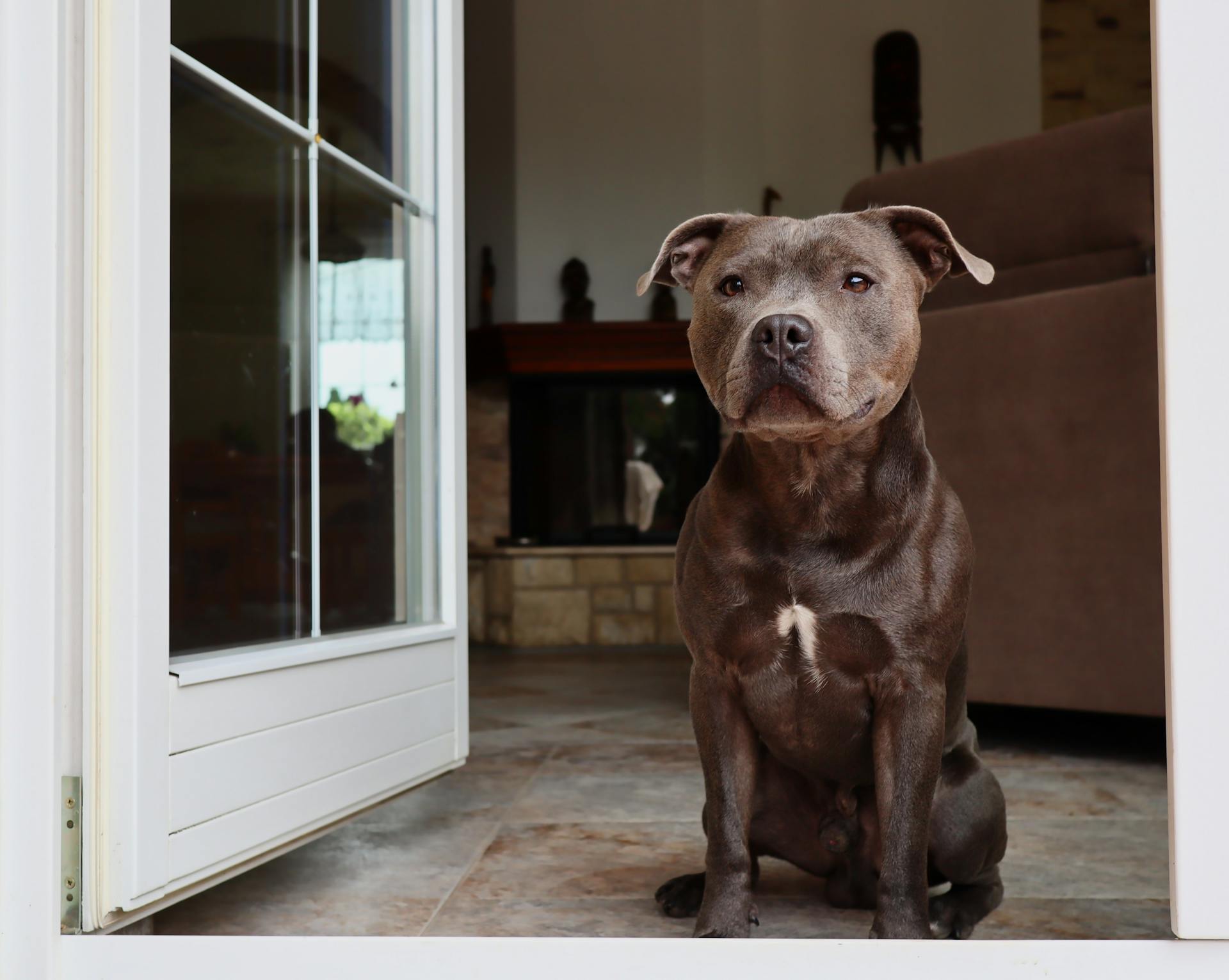
Shih Tzus are prone to obesity, which can lead to a range of health problems, including joint issues and diabetes.
To prevent obesity, feed your Shih Tzu a balanced diet with moderate portions.
Regular exercise is also essential for maintaining a healthy weight, as Shih Tzus need daily physical activity to stay fit.
Aim for at least 20-30 minutes of exercise per day, such as short walks or playtime in a securely fenced area.
Shih Tzus are also susceptible to gastrointestinal issues, including gas and bloating, due to their sensitive stomachs.
Limit treats and table scraps to minimize the risk of digestive upset.
A healthy Shih Tzu belly also requires regular grooming to prevent matting and tangling of the fur around their stomach area.
Causes of Shih Tzu Belly Issues
Shih Tzus are prone to sensitive stomachs, and sudden changes to their diet can be a shock to their system, increasing the risk of food allergies.
A sensitive stomach can lead to a range of issues, including vomiting, lethargy, a dull coat, itchy skin, diarrhea, and constipation.
If your Shih Tzu's energy levels are lower than usual, it could be a sign that their diet is not right for them.
Their poo can also be a good indicator of their health - if it's too hard or too liquid, there may be an underlying cause.
Some common causes of stomach issues in Shih Tzus include a simple stomach bug, eating something that upsets their stomach, or a more serious underlying health problem.
Here are some common signs of stomach problems in Shih Tzus:
- Diarrhea
- Vomiting
- Dry heaves
- Loud, gurgling stomach noises
- Excessive drooling
- Gas or bloating
If you notice any of these signs, it's essential to keep a close eye on your Shih Tzu and consider a change in diet or a vet check-up if the issues persist.
Symptoms and Diagnosing
Shih Tzus can develop belly rashes that present in various ways, including pyoderma, which is characterized by pimple-like lesions, dry, scaly, crusty skin, hair loss, and itchiness.
A red, inflamed, weepy, or scabbed appearance of the skin can also be a symptom of a belly rash in Shih Tzus. Yeast infections can result in a yeasty smell, and fungal infections like ringworm often have a distinct, circular pattern to the lesions.
To diagnose the cause of a belly rash in your Shih Tzu, it's essential to make an appointment with your veterinarian, who will perform diagnostic tests based on your dog's age, breed, overall health, and symptoms.
Symptoms of Rash
Symptoms of Rash can be quite alarming, but recognizing them early on can make a big difference.
Rashes on your dog's belly can present with pimple-like lesions, which are a common sign of pyoderma.
Dry, scaly, and crusty skin can also be a symptom, often accompanied by hair loss and itchiness.
Your dog's skin may appear red and inflamed, or weepy and scabbed, which can be a sign of a fungal infection.
A yeast infection can result in a yeasty smell, while fungal infections like ringworm often have a distinct, circular pattern to the lesions.
On a similar theme: Shih Tzu Breed Traits
Diagnosing Dog Rashes
Diagnosing dog rashes can be a complex process, and it's essential to work with a veterinarian to determine the underlying cause.
Your veterinarian will likely perform diagnostic tests based on your dog's age, breed, overall health, and symptoms.
Skin samples, blood tests, fungal cultures, antibiotic sensitivity tests, and allergy testing are all tools your vet may use to diagnose skin conditions in dogs.
In some cases, your veterinarian may refer you to a dermatologist for further testing and treatment.
Allergies can be more difficult to treat and may require treating both the allergy and any secondary skin infections that develop.
A dog skin soother balm may be recommended to help ease discomfort caused by skin rashes.
Conditions like hypothyroidism and Cushing's disease require treatment of the condition itself and the skin rash.
Your dog may require additional blood tests and follow-up monitoring to ensure the condition is being effectively treated.
Feeding and Diet
Feeding your Shih Tzu the right food is crucial to prevent stomach issues and maintain their overall health.
The amount of food your Shih Tzu needs to eat each day depends on their age, weight, activity level, and any present health conditions.
It's essential to keep an eye on your Shih Tzu's energy levels and monitor their poop quality to ensure they're not experiencing any digestive issues.
If your Shih Tzu has an upset stomach, it's recommended to fast them for several hours and then feed a small amount of bland food for a couple of days.
Some good options for bland food include plain white rice, mashed sweet potatoes, skinless chicken breast, plain Greek yogurt, and canned pumpkin.
If your Shih Tzu is experiencing diarrhea or vomiting, make sure to replenish their fluids and electrolytes with a 50/50 mix of cool water and unflavored Pedialyte.
Here's a general guideline for feeding your Shih Tzu based on their age and weight:
If you're unsure about how much food your Shih Tzu needs, consult with your vet or use the above table as a general guideline.
A balanced diet with fresh, human-grade ingredients is essential for maintaining your Shih Tzu's health and preventing weight gain.
Some essential nutrients to look for in your Shih Tzu's food include sodium, taurine, L-Carnitine, omega 3 fatty acids, magnesium, potassium, phosphorus, and antioxidants.
If your Shih Tzu is overweight, it's essential to adjust their diet and exercise routine to prevent further weight gain and potential health complications.
Expand your knowledge: Shih Tzu Favorite Food
Common Issues
Shih Tzu belly issues can arise from a simple stomach bug that resolves on its own within a day or two.
Your Shih Tzu might eat something that upsets her stomach, making her uncomfortable for a short time.
In some cases, these stomach issues can be a sign of a more serious underlying health problem, so it's essential to address the problem promptly.
Some common dog stomach issues include eating something that upsets the stomach, a simple stomach bug, and underlying health problems.
Curious to learn more? Check out: Shih Tzu Health
Pests and Parasites
Pests and parasites can be a major culprit behind your dog's rash, especially on sensitive areas like the belly and groin. Fleas, mites, and ticks can cause irritation, making your dog more susceptible to bacterial, yeast, and fungal infections.
Some common pests that can cause rashes in dogs include Demodex mites, walking dandruff, flea allergy dermatitis, and sarcoptic mange caused by the Sarcoptes scabiei mite.
These pesky parasites can lead to skin infections, allergic reactions, and even genetic conditions in some cases. If you suspect a pest or parasite is behind your dog's rash, it's essential to take action quickly to prevent further irritation and potential health complications.
Here are some common signs of pest and parasite infestations in dogs:
By being aware of these potential pests and parasites, you can take steps to prevent infestations and keep your furry friend healthy and happy.
Common Stomach Issues in Dogs
Dogs can get stomach problems for a number of reasons, and not all of them are due to a serious medical condition or underlying health problem.
Your Shih Tzu might just have a simple stomach bug that will resolve in a day or two, or she may eat something that upsets her stomach.
Some common dog stomach issues include food allergies or intolerances, stomach viruses, and stomach problems caused by eating something that doesn't agree with her.
If your pup has diarrhea, vomiting, dry heaves, a gurgling stomach, excessive drooling, or gas, it could be a sign of stomach issues.
Your vet can help you determine if your dog has a food allergy or intolerance, and help you narrow down which foods your pup may have an issue with.
Your dog can get a tummy bug just like you, and if you suspect this is the case, you can try treating her with at-home remedies like plain, white rice, mashed sweet potatoes, skinless chicken breast, plain Greek yogurt, or canned pumpkin.
Some signs that your pup's stomach issues are getting worse include extreme agitation or restlessness, inability to hold down water for more than 5 hours, a bloated stomach, fever, blood in vomit or stool, vomiting for more than 8 hours, diarrhea for more than one day, dry gums, and lethargic behavior or collapse.
Here are some common stomach issues in dogs:
- Food allergies or intolerances
- Stomach viruses
- Stomach problems caused by eating something that doesn't agree with her
Emergency Situations
In emergency situations, it's essential to stay calm and think clearly. Your pup ate something she shouldn't have.
You know the feeling, you eat a meal, and then suddenly, you just don't feel right. Your pup experiences the same thing; she eats a piece of grass, or a piece of trash, and it makes her throw up or get a little woozy.
The major thing to pay attention to is what your pup ate, and making sure that the offending item isn't poisonous for your pooch.
Your Pup Ate Something Bad
Your pup ate something bad, and now she's feeling off? It's like when you eat something that doesn't agree with you, and suddenly you're not feeling right.
You need to figure out what your pup ate, as it could be poisonous. Make sure to identify the offending item to take the right course of action.
Sometimes, a simple stomach bug will resolve on its own in a day or two, but there are more serious causes for concern. Your pup might have eaten something that upsets her stomach, or she might have a more serious stomach issue.
Your pup's stomach issues could be due to eating something bad, a stomach bug, or a more serious medical condition. Stomach problems in dogs can be caused by a variety of factors, and it's essential to address the issue quickly to make it easier to handle.
If your pup is experiencing stomach issues, it's crucial to pay attention to her symptoms and seek veterinary care if necessary.
Pup Has Stomach Virus
If your pup has a stomach virus, it's essential to act quickly and monitor their condition closely. Your dog can get a tummy bug just like you, and it's crucial to treat them with at-home remedies.
Watch your pup closely for any signs that things are not improving, and be prepared to call your vet if their situation gets worse. If you notice any of the following symptoms, it's a good idea to seek veterinary attention: diarrhea, vomiting, dry heaves, loud stomach noises, excessive drooling, gas, or bloating.
If you suspect that your pup has eaten something that upsets their stomach, let them fast for several hours and then feed them a small amount of bland food. Good options for bland food include plain white rice, mashed sweet potatoes, skinless chicken breast, plain Greek yogurt, and canned pumpkin.
To replenish your pup's fluids and electrolytes, offer a 50/50 mix of cool water and unflavored Pedialyte in small amounts at first. If your pup's symptoms don't improve, bring them to your vet as soon as possible.
For more insights, see: What Can Shih Tzu Eat
Sources
- https://www.akc.org/expert-advice/health/dog-belly-rash/
- https://www.petplate.com/blog/shih-tzu-nutrition-guide/
- https://www.ncbi.nlm.nih.gov/pmc/articles/PMC4143645/
- https://www.everythingshihtzu.com/do-shih-tzu-get-stomach-problems.html
- https://www.petethevet.com/loulou-the-10-year-old-shih-tzu-had-an-upset-stomach/
Featured Images: pexels.com


